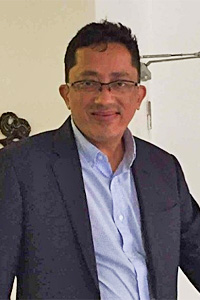
Democracies look to voters for validation of their economic policies. For Thailand's military junta, the affirmation is coming from Beijing, bankers and the likes of Harley-Davidson Inc.
Harley's decision to build a new Thai factory to supply Southeast Asia should be reassuring to Prime Minister Prayut Chan-o-cha. The former army chief, who ousted a civilian government in a 2014 coup, has a US$51 billion, five-year plan to mould the country's eastern seaboard -- already a large manufacturing hub -- into an industrial powerhouse.
Two of the three provinces included in the so-called Eastern Economic Corridor are hubs for Kawasaki Heavy Industries Ltd, BMW AG, Volkswagen AG's Ducati and Britain's Triumph Motorcycles Ltd. It's not clear whether Harley would join them, but the Thai government is bound to roll out the red carpet if it does.

A high-profile win for the special zone would silence sceptics who question the wisdom of doubling down on airports, seaports, high-speed train links and other trade-oriented infrastructure at a time when a tariff war between the US and China is threatening to disrupt global supply chains.
As far as Harley is concerned, by ditching the Trans-Pacific Partnership, US President Donald Trump has helped remove concerns around a hollowing out of the Thai automotive supply chain. Since Thailand wasn't a part of the original 12-country grouping, Vietnam, already a good location for making lighter bikes, could have used the TPP to quickly climb up the value chain. Mr Trump has unwittingly buttressed Thailand's competitive advantage in heavy motorcycles.
Bankers, both domestic and global, are gung-ho about financing the corridor; Chinese bidders are jostling with Japanese and European rivals to land its centrepiece: a $6.75 billion high-speed rail link that would connect the two airports in Bangkok with U-Tapao airport in Rayong province, the main gateway to the eastern corridor.
Yet the fate of the plan could hang in the balance depending on the outcome of the elections the junta says it intends to hold by February. Just because the government has passed a law to fast-track environmental impact studies and bypass city-planning restrictions for the corridor doesn't mean a democratically elected government -- especially of a tourism-dependent country like Thailand -- won't be forced to reconsider ecological costs afresh.
The other issue is regional inequity. Eastern Thai provinces produced less than half the output of Greater Bangkok in 1981; by 2013, they were ahead of the capital and surrounding areas. The region that needs to catch up is the landlocked northeast. For this, too, Thailand may have to rely on Beijing's belt-and-road ambitions.
The viability of a high-speed rail link connecting southern China with Bangkok-- and passing through northeastern Thailand -- is suspect. Laos, which would connect China to Thailand, could struggle to deal with the debt it's taking on for its share of the railway bounty. Extending the line to Malaysia and Singapore would also be tricky, given new Malaysian Prime Minister Mahathir Mohamad's move to halt $22 billion of Chinese-backed projects signed by his predecessor. However, if northeastern Thailand misses out on connectivity, it risks slipping further behind, especially if the remaking of the eastern seaboard proceeds apace.
Thailand's domestic politics pit the so-called "Bangkok elite" against poor farmers from the North and Northeast. A Harley factory may give bragging rights, but it's an unintended gift from Mr Trump -- and not a substitute for a popular endorsement. As the Malaysian U-turn has shown, before taking a big punt on trade and transport, it's good to also ask the voters. - BLOOMBERG OPINION
Andy Mukherjee is a Bloomberg Opinion columnist covering industrial companies and financial services.
